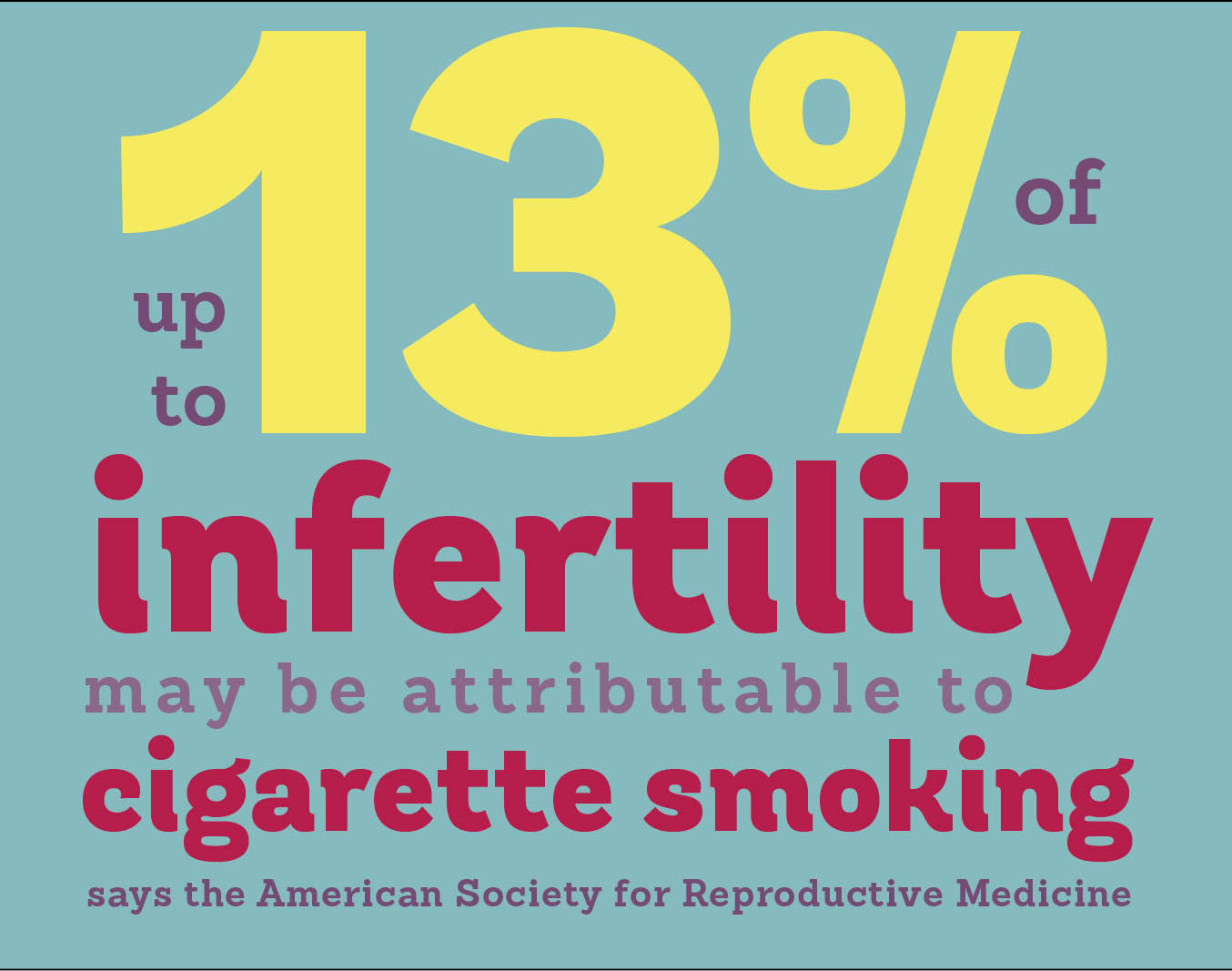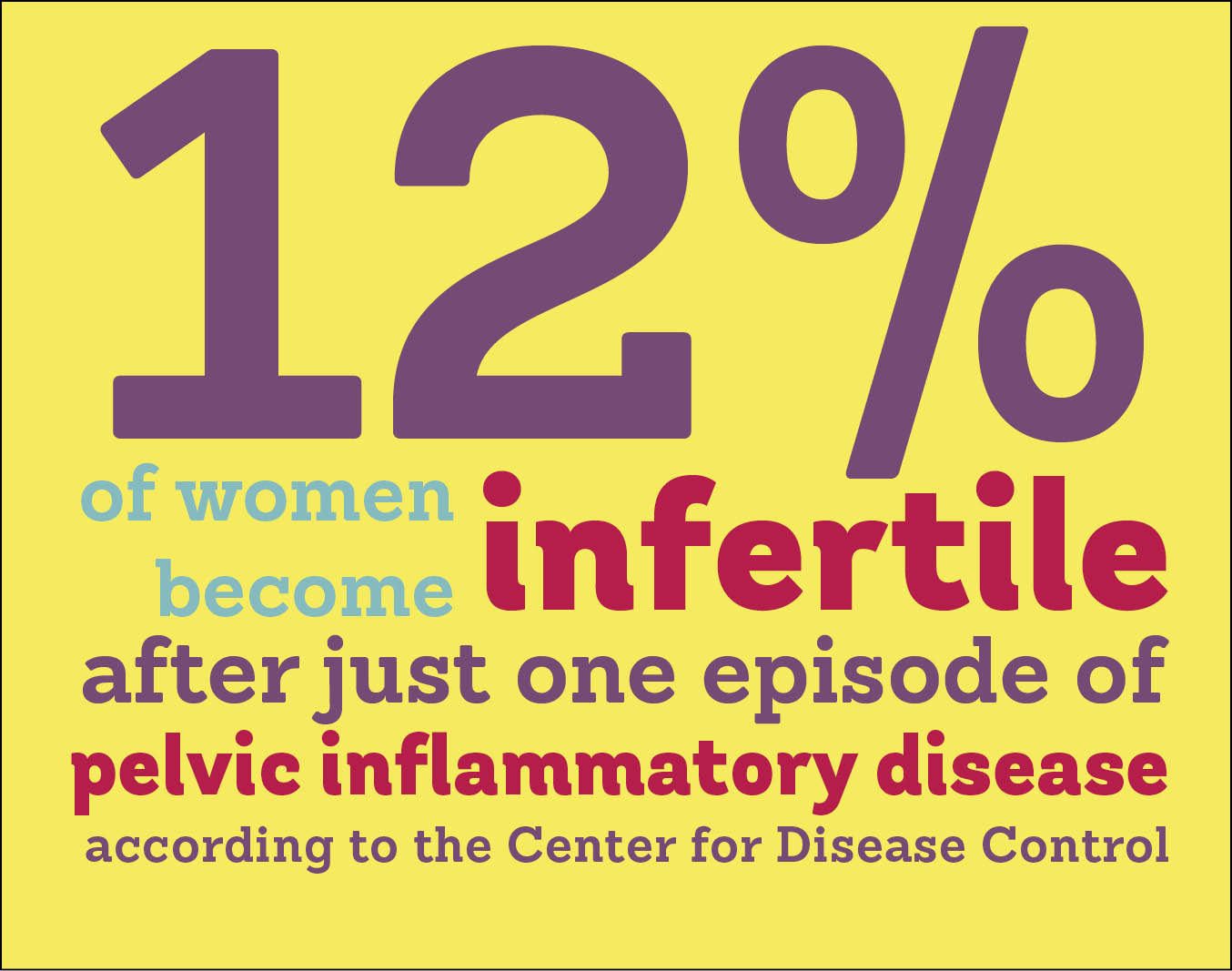The lifespan of a healthy woman’s fertility depends mainly on two things: the number of eggs in her ovaries (quantity) and how healthy those eggs are (quality). Quality and quantity are both more robust in youth and diminish as we get older, making age hands down the biggest influence on fertility for an otherwise healthy woman. And since we can’t stop time (unless we freeze our eggs!) there’s really nothing we can do to extend our fertility lifespan. Right?
Actually, there are a few things you can do.
First: stop smoking. The dangers of smoking while pregnant (and smoking in general) are widely known. But did you know that smoking depletes the ovarian reserve (the quantity we talked about above) and that women who smoke reach menopause one to four years earlier than nonsmokers?

Smoking also causes chromosomal damage to the eggs that are there, increasing the risk of genetic abnormalities in the embryos created from a smoker’s eggs.The American Society for Reproductive Medicine (ASRM) estimates that up to 13% of female infertility is caused by cigarette smoking. Among women who need in vitro fertilization to conceive, women who smoke require nearly twice the number of IVF attempts as non-smokers.
Contact Us to Chat with a Fertility Advisor
The good news is that quitting now can have a positive impact on your chances of conceiving in the future. While active smoking disrupts the hormones AMH and FSH that are important to fertility, past smoking hasn’t been found to influence present hormone levels. In other words, if you quit now, your hormones will forget the whole smoking thing ever happened.
Second: get tested (and treated, if necessary) for sexually transmitted infections (STIs). The long-term health effects of some STIs are widely known and feared. We understand, for instance, that HIV suppresses the immune system, and that HPV increases the risk of cervical cancer. But what do you know about chlamydia or gonorrhea? Probably not much, since they’re not talked about very often. And yet these two infections pose the biggest threat to future fertility for women.
Chlamydia and gonorrhea are both easily detectable by screening tests and curable with antibiotics. Which is great—until you learn that both are often symptomless, especially in women, and therefore go undetected and, of course, untreated. But just because there are no symptoms doesn’t mean these infections aren’t doing damage; untreated chlamydia or gonorrhea can lead to pelvic inflammatory disease (PID), which can irreparably damage the Fallopian tubes and reproductive organs, leaving a woman infertile even after she has treated the infection. Chlamydia leads to PID in up to 40% of untreated women, and 12% of women become infertile after just one episode of PID.

This makes it that much more important to get tested and treated! Ask your doctor for a routine STI screening at your next visit to uncover and resolve any hidden infections before they do permanent harm.
Third? Well, there isn’t really anything else you can do to extend your fertility lifespan (besides, of course, freezing your eggs). But there are other lifestyle factors that affect present fertility, or your ability to get pregnant now. These probably won’t have an impact on future fertility, but they’re still important to keep in mind when (or if) you’re ready to get pregnant.
Being overweight or underweight. We hear a lot about weight impacting fertility, and for good reason: 12% of infertility is the result of abnormal body weight, (defined as less than 95% or more than 120% of ideal body weight). There’s no evidence that it abnormal body weight affects a woman’s fertility lifespan or shortens the distance to menopause—in fact, according to ASRM, “more than 70% of women who are infertile as the result of body weight disorders will conceive spontaneously if their weight disorder is corrected.”
Sleep. Similarly, an irregular sleep schedule—like that occurring with frequent international travel or overnight work shifts—can disrupt hormone regulation and interfere with your chance of pregnancy in the present. Returning to a normal schedule should correct the problem, and, again, there isn’t any link between this scenario and the number of years that a woman may successfully conceive into the future.
What about drinking? Like many things in life, alcohol is not a bad thing in moderation. There’s no evidence to suggest that moderate drinking negatively impacts fertility lifespan, so no need to feel guilty for having that after-work cocktail.
In short, a variety of factors affect overall health, including a women’s ability to get pregnant in the present. But to believe that those things impact ovarian reserve or the length of time during her life that a woman is able to get pregnant would be a mistake. That simply isn’t so.
Lastly, we do want to mention something on the horizon of medical research that we find fascinating, if not entirely practical: calorie restriction. While this is unchartered research territory when it comes to humans, some amazing animal studies have piqued our interest. In one study, just 4 months of calorie restriction cut the natural decrease in rodents’ ovarian reserve in half—and 73% of offspring from mice on the calorie-restricted diet survived, even when the mother was of advanced reproductive age (compared to 22% that survived from similarly aged mice fed a normal diet).
Another study showed that the eggs of aged mice fed a calorie-restricted diet “more closely resembled the healthy eggs of young adult females during their prime reproductive life.” This is potentially very exciting news. But at the risk of bursting your bubble, it’s not as simple as just going on a diet. In research studies, calorie restriction can mean reducing daily calorie intake by a third, or more.
So, maybe you can start extending your fertility by skipping dessert. But better yet, if you smoke, get help to quit. And go get that STI test! Your uterus, Fallopian tubes, and ovaries will thank you.
Any questions? Ask us on Facebook!




